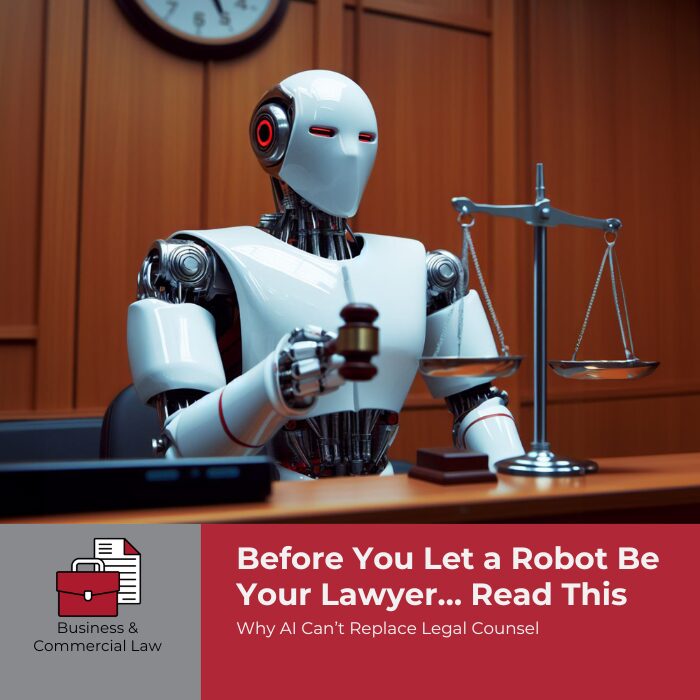Do I Still Need an Attorney in the Age of AI?
Written by William Schroeder

The rise of Artificial Intelligence (AI) has led many to wonder whether they still need an attorney. After all, why pay hourly legal fees when AI can generate answers instantly, often for free or at a relatively modest subscription cost? There’s no denying that AI has revolutionized access to information. What was once locked away in textbooks and specialized databases is now available to anyone with an internet connection. AI even goes further, offering guidance on interpreting statutes, case law, and drafting documents. And it’s improving faster than most can keep up.
Yet, despite its incredible capabilities, AI cannot replicate the human experience, judgment, or foresight that define skilled legal counsel. AI can summarize what a statute means or help generate a contract, but it cannot weigh the strategic, relational, and emotional dimensions that drive real-world legal decisions. Should you proceed with that business transaction? If a contract term becomes a make-or-break issue, is it worth holding firm, or compromising to close the deal? The law might entitle you to a certain recovery, but is it wiser to negotiate an amicable settlement?
These are the kinds of questions that depend not just on knowledge, but on experience and judgment, which are qualities that AI doesn’t yet possess. There remains immense value in the human touch, emotional intelligence, and relationships that a skilled attorney brings to the table, which often makes the difference between a missed opportunity and a successful resolution.
That said, clients shouldn’t feel they must choose between AI and their attorney. Instead, they should expect their lawyers to integrate technology intelligently and ethically. As the legal profession shifts from a strictly hourly model to a more value-based approach, clients have every right to expect that their attorneys leverage AI to deliver faster, sharper, and more strategic service.
AI can enhance what attorneys do, but it can’t replace who we are. At least, not until the robots take over.


